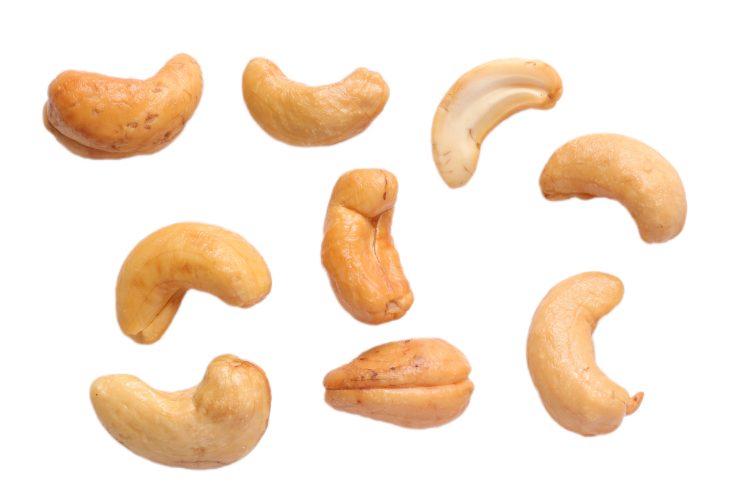Frankfurt Airport tests world’s first organic cashew-based bitumen for sustainable road construction
- Like
- Digg
- Del
- Tumblr
- VKontakte
- Buffer
- Love This
- Odnoklassniki
- Meneame
- Blogger
- Amazon
- Yahoo Mail
- Gmail
- AOL
- Newsvine
- HackerNews
- Evernote
- MySpace
- Mail.ru
- Viadeo
- Line
- Comments
- Yummly
- SMS
- Viber
- Telegram
- Subscribe
- Skype
- Facebook Messenger
- Kakao
- LiveJournal
- Yammer
- Edgar
- Fintel
- Mix
- Instapaper
- Copy Link
Posted: 4 November 2024 | Gabriel Higgins | 1 comment
Frankfurt Airport has joined with the startup company B2Square (Bitumen Beyond Oil), to explore innovative approaches for construction materials, with the use of organic cashew-based bitumen


Frankfurt Airport (FRA) has joined with the startup company B2Square (Bitumen Beyond Oil), to explore innovative approaches for construction materials. FRA is using sustainable asphalt concrete to construct and test a 200-meter-long section of road on the airport apron. This marks the first instance of organic cashew-based bitumen being utilised at an airport globally.
“We regard this innovative bioasphalt based on organic bitumen as a fascinating possibility for reducing Frankfurt Airport’s carbon footprint,” says Andreas Eibensteiner of Fraport AG’s Environmental Management Department. “For decarbonizing the Fraport Group, we’re mainly focusing on avoiding CO2 emissions in the areas that we directly impact. Greater attention is also being paid to scope 3 emissions, including those caused by construction activities. It’s important to look for innovative ways to reduce the climate footprint of our supply chains.”
How is organic cashew-based bitumen made and what will it do?
Bitumen is indispensable for road construction. It is normally obtained as a byproduct when distilling crude oil and then mixed with mineral aggregate to make asphalt concrete (also known as blacktop) for building roads. In this case, however, B2Square is blending naturally occurring hydrocarbon resin with an organic extract obtained by pressing cashew shells. The resulting material is then mixed with aggregate to make sustainable asphalt.
This biogenic raw material is much more durable and climate-friendly than conventional asphalt concrete. Like all plants, cashew trees extract carbon dioxide from the atmosphere. The CO2 stored in cashew shells is neutralized in a special process and then permanently bound in road pavement. The low-temperature method used to lay it additionally improves the climate balance by consuming less energy.
By using bioasphalt, Fraport is also already complying now with new laws that will limit exposure to steam and aerosols at workplaces starting in 2025.
At the Kelsterbach asphalt plant not far from the airport, the material is mixed with crushed rock and loaded onto trucks that take it to construction sites. The test stretch is located in the southern part of the airport’s apron. Fraport AG is paving one side of it with sustainable bioasphalt and the other with conventional asphalt. Vehicles will drive to the end on one side, then turn around and drive back on the other side. This balanced use is an important prerequisite for obtaining useful results.
The independent laboratory HNL Ingenieur- und Prüfgesellschaft mbH in Aschaffenburg is monitoring the project. “Over the next two years, we hope to gain valuable insights on the durability of this sustainable asphalt,” explained Axel Konrad, a project manager in Fraport AG’s Central Infrastructure Management department. “Checks are being carried out every six months. The extent of compaction and the void content of the asphalt material are crucial parameters. Whether or not we continue using the bioasphalt will depend on the results.”
Check out B2Square here.
Related topics
Airport development, Cleaner, Greener Airports: Making Aviation More Sustainable Series, Emissions, Green energy, Innovation, Runways and pavements, Sustainability
Related airports
Related organisations
B2Square (Bitumen Beyond Oil), Fraport AG Frankfurt Airport Services Worldwide



















So what happens to the toxic urushiol resin in the shells of the cashew nut? It is toxic to humans and even eating raw cashews is toxic. How is this going to play out on the people working with this new product? What are the MSDS saying about this product?